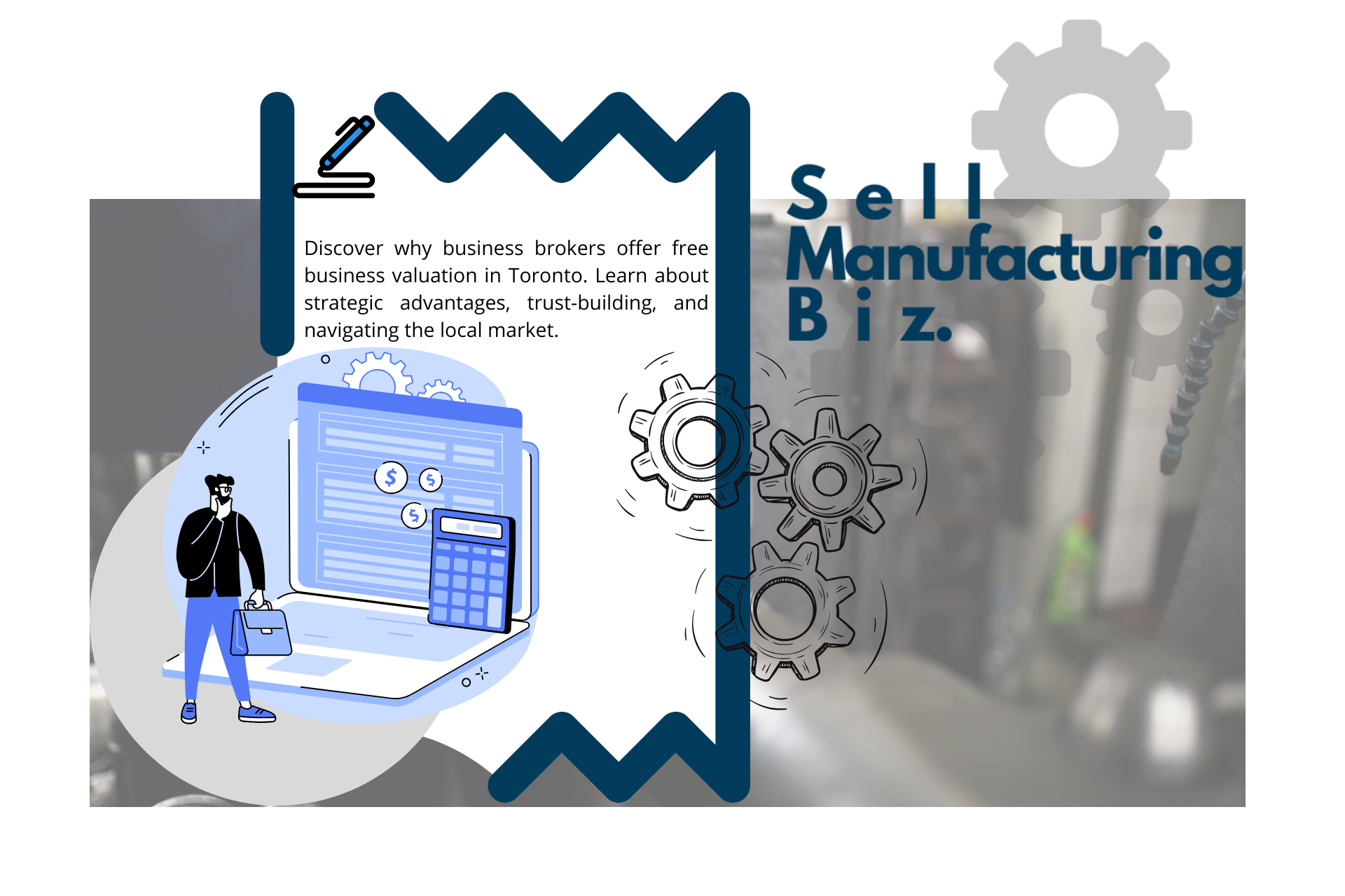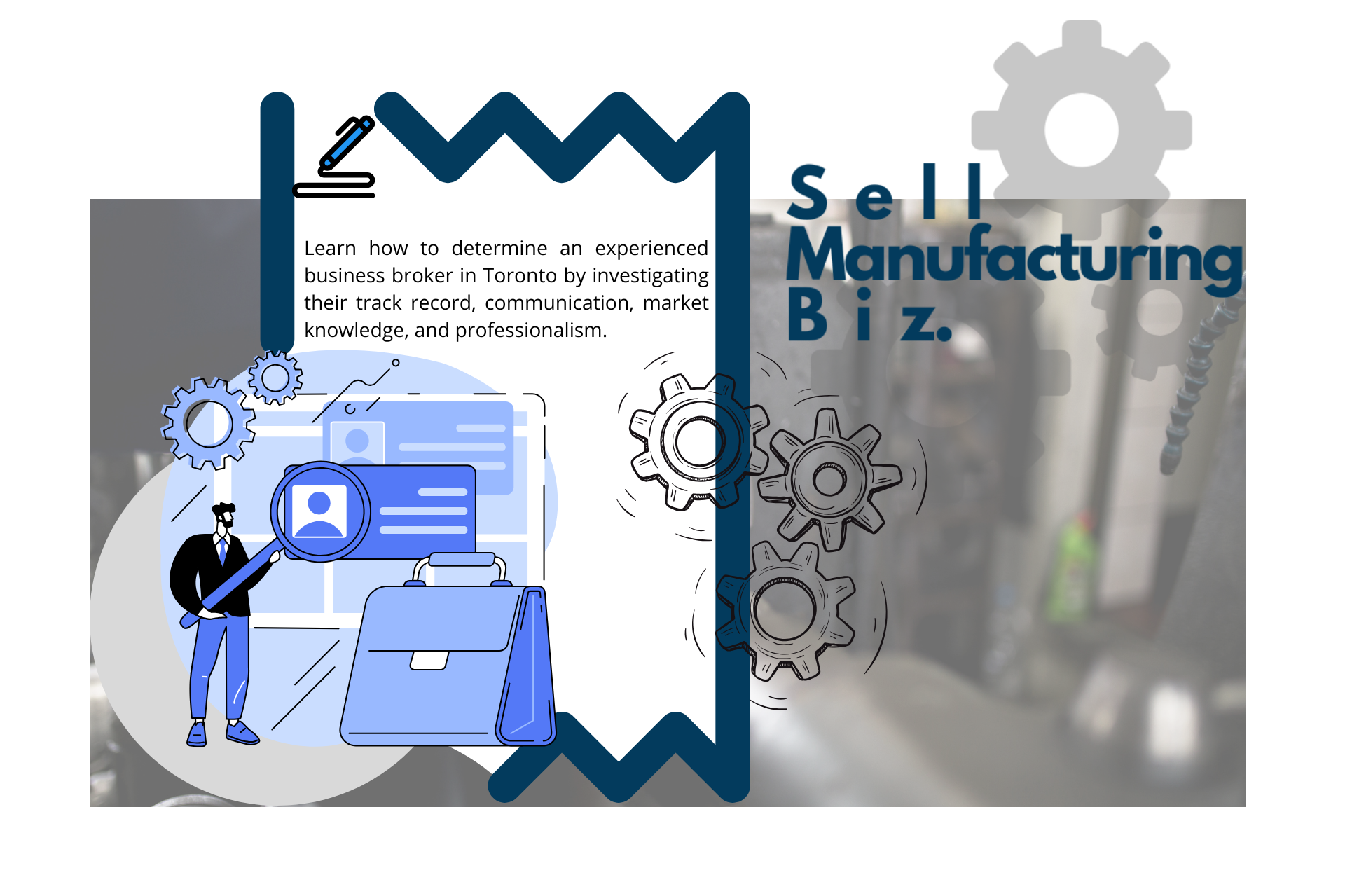Inside the Mind of a Buyer: Unveiling the Secrets to Valuing Your Business for Sale
How to Value Your Business to Sell
Are you considering selling your business manufacturing business in Ontario?
Understanding how buyers think and what they value is crucial to ensuring you get the best possible price for your hard-earned venture. In this article, we dive deep into the mind of a buyer, uncovering the secrets to valuing your business for sale.
From financial metrics to market trends, we explore the key factors that influence a buyer's decision-making process.
By gaining insight into their perspective, you can strategically position your business to maximize its value and attract the right buyers. Whether you're a seasoned entrepreneur or just starting out, this article will provide you with valuable tips and strategies to navigate the complex world of business valuations.
Get ready to unlock the secrets that will help you achieve the best possible outcome when selling your business.
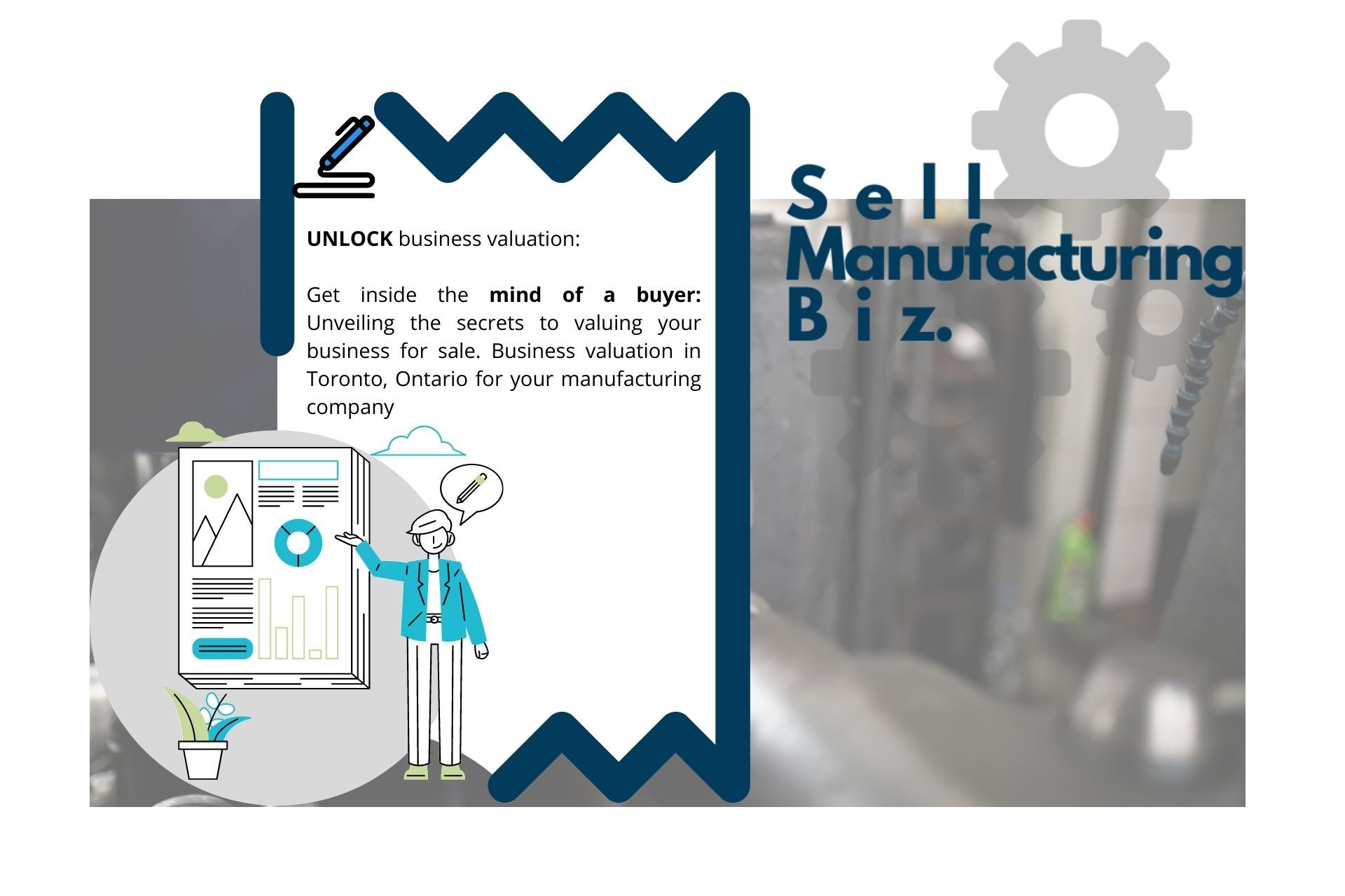
Understanding the Buyer's Perspective
When it comes to valuing your business for sale, it's essential to understand the buyer's perspective.
Buyers are looking for businesses that align with their goals and objectives. They want to see a strong track record of revenue and profit growth, a solid customer base, and a competitive advantage that sets your business apart from the rest.
Buyers also consider the potential for future growth and scalability. They want to know if your business can continue to thrive even after the sale.
To effectively position your business, you need to put yourself in the buyer's shoes. Think about what would attract you to a business if you were looking to make an acquisition.
Consider the:
- Industry trends,
- market conditions,
- and unique selling points that would make your business an attractive investment.
By understanding the buyer's perspective, you can tailor your approach and highlight the aspects of your business that will resonate most with potential buyers.
Factors That Influence the Value of a Business
Several factors influence the value of a business.
Financial performance is one of the primary considerations for buyers.
They will closely examine your:
- Revenue,
- profit margins,
- and cash flow.
Buyers typically look for businesses with a proven track record of consistent financial performance and growth. They also consider the potential for future earnings and whether the business has any outstanding debts or legal liabilities.
In addition to financial metrics, buyers also consider non-financial factors that contribute to a business's value. These may include:
- The strength of your brand,
- customer loyalty,
- intellectual property,
- and the quality of your employees.
Buyers want to invest in businesses that have a strong reputation and a loyal customer base. They also look for businesses with unique assets or proprietary technology that can give them a competitive edge in the market.
Market conditions also play a significant role in business valuation. Buyers will assess the overall economic climate, industry trends, and market potential for your business. They want to know if there is a demand for your products or services and if the market is growing or declining.
Understanding the market conditions and being able to demonstrate growth potential can significantly impact the value of your business.
Financial Metrics Used in Business Valuation
When valuing a business, buyers rely on various financial metrics to assess its worth. These metrics help them determine the return on investment and the potential for future earnings. Some of the key financial metrics used in business valuation include:
1) Revenue
Buyers look for businesses with a consistent and growing revenue stream. They want to see a track record of revenue growth over time.
2) Profit Margins
Buyers assess the profitability of a business by analyzing its profit margins. They want to see healthy profit margins that are in line with industry standards.
3) Earnings Before Interest, Taxes, Depreciation, and Amortization (EBITDA)
EBITDA is a commonly used metric to evaluate a business's profitability. It provides a snapshot of the business's operational performance by excluding non-cash expenses and one-time charges.
4) Cash Flow
Buyers consider the cash flow generated by the business. Positive cash flow indicates that the business can cover its expenses and has the potential for future growth.
5) Return on Investment (ROI)
Buyers calculate the ROI to determine the profitability of investing in your business. They compare the expected return to the initial investment to assess the viability of the acquisition.
By understanding these financial metrics and preparing accurate and up-to-date financial statements, you can provide buyers with the information they need to make an informed decision about the value of your business.
Non-Financial Considerations in Business Valuation
While financial metrics are essential, buyers also take into account non-financial factors when valuing a business. These factors can significantly impact the perceived value of your business and attract the right buyers. Some of the non-financial considerations include:
1) Brand Reputation
Buyers want to invest in businesses with a strong brand reputation. They look for businesses that have built a loyal customer base and have a positive image in the market.
2) Intellectual Property
If your business has unique intellectual property, such as patents, trademarks, or copyrights, it can significantly increase its value. Intellectual property provides a competitive advantage and can be an attractive asset for buyers.
3) Customer Base
A strong and loyal customer base is a valuable asset for any business. Buyers want to see a diverse customer base that generates recurring revenue and has growth potential.
4) Quality of employees
Buyers consider the skills and expertise of your employees. They want to know if you have a talented team in place that can continue to drive the business forward after the sale.
By focusing on these non-financial considerations, you can enhance the perceived value of your business and attract buyers who appreciate the unique aspects of your venture.
The Role of Market Conditions in Business Valuation
Market conditions play a crucial role in business valuation. Buyers assess the overall economic climate and industry trends to determine the potential for growth and profitability. They want to invest in businesses that are in industries with a positive outlook and have the potential for future expansion.
To understand the market conditions, you need to conduct thorough market research. Identify the trends and opportunities in your industry and position your business to capitalize on them. Highlight any unique selling points or competitive advantages that set your business apart from the competition.
By demonstrating the growth potential of your business in a favorable market, you can increase its value and attract buyers who are willing to pay a premium.
The Importance of Due Diligence in the Valuation Process
Due diligence is a critical step in the business valuation process.
Buyers conduct due diligence to verify the accuracy of the information provided by the seller and assess the risks and potential opportunities associated with the acquisition. Due diligence typically includes a detailed examination of the financial statements, contracts, legal documents, and operational processes of the business.
As a seller, it's essential to prepare for due diligence by organizing your financial records and ensuring all necessary documentation is readily available. By being transparent and providing accurate information, you can build trust with potential buyers and facilitate a smooth due diligence process.
Failing to prepare for due diligence or providing misleading information can significantly impact the valuation of your business and jeopardize the sale.
Strategies to Increase the Value of Your Business
To maximize the value of your business, there are several strategies you can implement:
1) Focus on Growth
Buyers are attracted to businesses with a track record of revenue and profit growth. Implement strategies to drive growth, such as expanding into new markets, launching new products or services, or increasing your market share.
2) Build a Strong Management Team
Buyers want to invest in businesses that can continue to thrive even after the sale. Build a strong management team that can take over the day-to-day operations and drive the business forward.
3) Enhance Your Brand
Invest in building a strong brand reputation. Focus on customer service, marketing, and public relations to create a positive image in the market.
4) Streamline Operations
Optimize your operational processes to improve efficiency and reduce costs. Buyers appreciate businesses with streamlined operations that generate higher profit margins.
5) Diversify Your Customer Base
Reduce dependency on a single customer or a few key clients by diversifying your customer base. This reduces the risk associated with customer concentration and increases the attractiveness of your business to buyers.
By implementing these strategies, you can increase the value of your business and position it as an attractive investment opportunity.
Common Mistakes to Avoid When Valuing a Business For Sale
When valuing your business for sale, it's crucial to avoid common mistakes that can negatively impact its perceived value. Some of the mistakes to avoid include:
1) Overvaluing or Undervaluing Your Business
Accurately valuing your business is essential. Overvaluing your business can deter potential buyers while undervaluing it can result in a lower sale price.
2) Neglecting to Prepare Financial Statements
Buyers rely on accurate financial statements to assess the value of their business. Failing to prepare detailed and up-to-date financial statements can raise concerns and decrease the perceived value of your business.
3) Ignoring Market Conditions
Market conditions significantly influence the value of your business. Ignoring market trends and failing to position your business accordingly can result in a lower valuation.
4) Lack of Transparency
Buyers value transparency. Failing to provide accurate and transparent information during the due diligence process can erode trust and decrease the perceived value of your business.
5) Not Seeking Professional Assistance
Valuing a business is a complex process that requires expertise. Failing to seek professional assistance, such as hiring a business valuation expert or an experienced broker, can result in an inaccurate valuation.
By avoiding these common mistakes, you can ensure that the value of your business is accurately assessed and maximize its potential sale price.
Hiring Professionals to Assist in the Valuation Process
Valuing a business for sale is a complex process that requires expertise.
Hiring professionals, such as business valuation experts or experienced brokers, can significantly impact the accuracy of the valuation and the success of the sale. These professionals have the knowledge and experience to assess the value of your business objectively and provide valuable insights into market conditions and buyer expectations.
When selecting professionals to assist in the valuation process, it's essential to choose individuals or firms with a proven track record and industry expertise. Look for professionals who have experience in your specific industry and have successfully facilitated the sale of similar businesses.
By working with professionals, you can ensure that your business is accurately valued and positioned to attract the right buyers.
Unlocking the True Value of Your Business
Valuing your business for sale is a complex and critical process.
Understanding the buyer's perspective and the factors that influence the value of your business is essential to maximize its potential sale price.
By focusing on:
- Financial metrics,
- non-financial considerations,
- market conditions,
- and conducting thorough due diligence,
you can strategically position your business and attract the right buyers. Implementing strategies to increase the value of your business and avoiding common valuation mistakes will further enhance its perceived value.
Finally, hiring professionals to assist in the valuation process can provide valuable insights and ensure that your business is accurately assessed. By unlocking the true value of your business, you can achieve the best possible outcome when selling your hard-earned venture.
Final Thoughts: The Next Steps
If you are a retiring business owner looking to sell your machine shop in Ontario, here are six tips to get you started:
1. Plan for your exit. Selling a small and medium size machine shop business in Ontario can take a long time, so it's important to start early and have a clear strategy.
2. Know your objectives and expectations. What are you looking for in a buyer? What are your financial and personal goals? How much are you willing to compromise?
3. Understand your company's value. This is a crucial step to take when planning to sell your manufacturing business in Ontario. You need to know how much your business is worth and what factors influence its valuation.
4. Find the right buyer for your business. There are different types of buyers in the market, such as strategic buyers, financial buyers, or individual investors. You need to find the one that matches your criteria and has the resources and expertise to close the deal.
5. Be ready for due diligence. This is when buyers will want to know everything about your business, from its financial performance to its operational processes. You need to be prepared to provide accurate and complete information and answer any questions they may have.
6. Be flexible and open-minded. Negotiating a deal can be challenging and complex, so you need to be willing to adapt and compromise on some aspects of the deal.
We are a deal team of sell-side M&A advisors, also known as Canada's manufacturing business brokers. We have successfully closed hundreds of deals in Ontario, British Columbia, Edmonton, and Alberta Canada, and more than 15 years of deal-making experience and knowledge to help you sell your business for the best price and terms.
Sell My Manufacturing Biz has a deep understanding of the Canadian market and an extensive network of buyers, which allows us to find the most suitable buyer for your business. We also provide comprehensive support throughout the entire process, from initial valuation to post-closing integration.
At Sell My Manufacturing Biz, we are passionate about helping clients achieve their goals and maximize their value. If you are thinking about selling your profitable SMB manufacturing business, we would love to help you through the process and make it a smooth and rewarding experience.
Are you ready to sell your manufacturing company or are you still exploring your options? Whether you have made up your mind or not, you can start here or call (905) 847-8888 to get in touch with our expert deal team.
Our Certified M&A Advisor, Khaled Baranbo, will personally listen to your challenges and priorities and handle your inquiry with professionalism and confidentiality. Don't miss this opportunity to work with Sell My Manufacturing Biz, the leading broker for small and medium size manufacturing businesses in Canada.
Next, Unlock Valuation Multiples For Machine Shops: List Your CNC Manufacturer For Sale With Confidence
Part of tips to selling manufacturing business in Ontario series ->
Find a Business Broker Near You in Canada
Get in this queue for a whale’s tail. They are a beauty, eh
We just wanted to say hi and thanks for stopping by our little corner of the web. :) “Go ahead and eat your elephant ears on the chesterfield. I’ll come sit with you as soon as I take these runners off.” But, alas, this is the Internet.
However, we think you'll love our email newsletter about building value and properly position your manufacturing company before transition/exit your business.
As a special welcome gift for subscribing, you'll also get our helping and educational guides, tips, tutorials, etc.. for free.
It's filled with the best practices for retiring serial business owners like Joseph-Armand Bombardier, John Molson, Warren Buffett and many more.
Just sign up for our emails below.
